As Finland’s Future Fund, Sitra’s mission is to anticipate future developments, encourage reform and strengthen Finnish well-being, competitiveness and resilience.
We almost always work together with others. We succeed when others succeed as well.
Sometimes it may take years before the results of our work become visible; when a service, product or operating model developed, tried and tested with Sitra’s support becomes established as part of everyday life and is adopted by more and more people.
Without even knowing it, you may also be using on a daily basis products or services that Sitra has helped to develop. One of the oldest Finnish success stories resulting from funding from Sitra is xylitol. Here are 22 more.
1. Sitra’s Megatrends Lists are eagerly followed by companies and educational institutions – Finnish people are interested in outlooks on the future.
In this day and age, surprises and crises follow each other. Although in crisis situations we may focus our attention on the present, the megatrends, or broad arcs of change, still remain. Right now, the need to look further into the future and find solutions for building a better tomorrow is particularly important. Megatrends are one way to obtain an overall picture of the situation and develop future-oriented thinking.
Sitra has been publishing its Megatrends Lists since 2011. To make understanding the megatrends easier, we also produce megatrend cards, videos, slideshows and various tools that are intended for anyone interested in the future. Finnish people are clearly interested in megatrends: the Megatrends website has been visited by more than 100,000 different people since the beginning of 2020, the Megatrends 2020 report has been downloaded more than 40,000 times and the megatrend cards more than 20,000 times. Sitra’s specialists have also given hundreds of speeches on the topic all across Finland. According to the Futures Barometer 2021 survey (in Finnish), people in Finland know the megatrends well or at least relatively well.
Sitra’s megatrends list is widely used in the strategic work of organisations and in the teaching of educational institutions of all levels.
2. A total of 1.4 million lifestyle tests taken and thousands of action plans created for a sustainable lifestyle.
Two thirds of all greenhouse gas emissions in Finland can be attributed to us, ordinary people. They derive from our everyday lives, from how we live, move around and eat and what we buy. Such daily choices can also allow us to reduce emissions.
However, there are very limited means for assessing the climate impacts of individuals’ lifestyles. To fill this gap, Sitra developed a lifestyle test. By taking the test, you can obtain an assessment of your personal carbon footprint and customised recommendations for reducing it. From the compilation of 100 Smart Ways to Live Sustainably, everyone can pick out the tips and practices that are best suited to them.
The test, launched on the Sitra website in 2018, has been taken more than 1.4 million times. The test has also been incorporated into Commitment2050, a service in which thousands of people in Finland have made plans for reducing their carbon footprint. Based on the lifestyle test, Sitra is now developing a new tool for other EU member states as part of the Positive and Sustainable Lifestyle project led by Sitra. The city of London is also preparing to launch a similar test.
3. Circular economy teaching at all levels of education to make sustainable lifestyles and production a new norm.
Since 2015, we have been working hard to advance a transition from the current economic model that wastes natural resources and burdens the climate and the environment to a circular economy in which we put everything we already have to more efficient use. A circular economy would also reduce our dependence on countries where raw materials and products are produced under questionable conditions.
It is question of huge change. Therefore, new expertise is needed to make sustainable lifestyles and production a new norm. In collaboration with more than 50 companies and educational institutions and organisations, we developed circular economy learning materials and courses for all levels of education around Finland. For example, the circular economy was included in the activities of Yrityskylä, which in 2019 was attended by 80 per cent of Finnish sixth graders (12–13 year olds) and 60 per cent of ninth graders (15-16 year olds). Finland’s comprehensive approach to the circular economy has also attracted international interest.
4. The data exchange layer has facilitated the use of data in various registers, resulting in services such as Suomi.fi.
Digital services require means for strong personal identification, an exchange of data between registers, and common rules and new skills. We brought together the public and private sectors to promote the use of data in different registers. The result was a common data exchange layer.
The data exchange layer defines how information is transmitted between different information systems. It enables the use of existing databases when developing new services. A project co-ordinated by Sitra laid the foundation for the legislative framework and structure of the data exchange layer. Services produced using the model include Suomi.fi, the Incomes Register and the Residential and Commercial Property Information System.
5. Terveyskirjasto (electronic healthcare information library) gives everyone access to up-to-date data on health and illnesses.
Reliable and easy-to-understand data makes it easier for people to take responsibility for their own health. Together with the Finnish Medical Society Duodecim, we started building Terveyskirjasto (in Finnish), which makes up-to-date data on health and illnesses available to everyone in Finland.
Terveyskirjasto launched as a national service at the beginning of 2007. Back then, Duodecim and Sitra offered everyone in Finland user access to the service for one year. From 2010 onwards, the funding of the open user access to Terveyskirjasto has been provided by parties in the public and private health sectors in Finland. Terveyskirjasto contains more than 10,000 articles written by specialists.
6. Improving public healthcare by introducing e-services and remote appointments.
Since the beginning of the 2000s, our leading thought in reforming the health and social services sector has been to bring a more human-oriented approach to the services by making use of technology, data and new operating methods. The starting point is that health and social services must be of high quality and accessible to all. Digitalisation and information systems have revolutionised healthcare work in many ways and challenged professionals in the field to develop and test new, more functional models. We have been there to help and support those undertaking this work.
Sitra has tackled the problem of long waiting times for public healthcare by introducing various experiments, such as remote appointments and electronic services. One example was the Health Kiosk experiment, which offered low-threshold services and fast access to them in a new kind of environment, the Elo shopping centre Ylöjärvi. Since then, similar service points have been established in several localities, such as Lahti. The easily accessible services have been popular, and even led to the diagnosis of previously undiagnosed illnesses, for which patients were referred for further treatment. A preventive approach reduces health expenditure.
7. Practical methods for future-oriented thinking and change.
We produce methods and tools to support future-oriented thinking and those implementing change. The aim is to make future-oriented thinking in Finland more commonplace and to involve an increasingly wider and more diverse group of people in discussing future prospects.
Good Cards (in Finnish), launched in 2022, is a game for everyone interested in developing their ability to imagine different futures and thus practise the skill of future-oriented thinking. The game has been popular in vocational institutions, universities of applied sciences and upper-secondary schools, among other places. Our Futures Frequency workshop method also provides an increasing number of people with the skills to discuss the future. The method specifically helps to focus the attention on combining future-oriented thinking and changemaking, leading to improvements in related competence. The method was assessed by VTT and, according to their assessment, it works well.
Those engaged in implementing societal changes in different ways have long needed tangible tools to support their efforts. The Change Game (in Finnish) helps teams to establish a common understanding of the change in question, whether it concerns climate change, the transformation of work, strengthening democracy, managing a workplace or organisational change.
8. Making the climate crisis the business of world finance ministers.
Combating the climate crisis requires a variety of means and a range of different stakeholders. The Coalition of Finance Ministers for Climate Action aims to integrate climate change into the design of economic policy and financing solutions. The co-operation is aimed at integrating the input of financial ministries and economic policy instruments – taxation, budgeting, funding and public procurement – into the fight against climate change.
Sitra supported the establishment of the Coalition of Finance Ministers for Climate Action, initiated by Finland and created in 2019. Sitra is also a partner of the Action Coalition. To support its work, we have produced a number of reports on the impacts of long-term climate strategies on the public economy and on the tools that ministries can use to better analyse the impacts of climate policy on general government finances.
9. The world’s leading forum for accelerating circular economy solutions.
Did you know that the leading international event in the circular economy field was originally initiated by Sitra? Since 2017, the World Circular Economy Forum (WCEF) has been bringing together the most important players in the circular economy to help find the best solutions. Each year, the forum’s main event attracts thousands of participants. For example, the WCEF2021 forum, arranged fully online, was attended by more than 26,000 people from 134 countries. There was even one participant from the Antarctic. In 2022, the forum was held in Rwanda with people from 150 countries participating in person or remotely.
The forum has accelerated the development of the circular economy in several countries and the Global Alliance on Circular Economy and Resource Efficiency (GACERE), led by the European Commission, also now convenes at the same time as WCEF. Partly thanks to the WCEF, the World Economic Forum acknowledged Sitra as the world’s leading public-sector circular economy organisation in 2018.
10. Libraries as new centres for democracy and participation
Two of the cornerstones of Finland’s success story have been trust and open societal dialogue. However, the societal participation of people in Finland is declining. According to the Organisation for Economic Co-operation and Development (OECD), which monitors levels of public trust, people in Finland still trust public institutions but do not believe in their own ability to influence matters.
A large number of people in Finland use library services every day. Therefore, we wanted to test whether libraries could offer a new venue for democracy and influencing. A better connection between citizens and decision-makers would strengthen democracy.
Mäntyharju promoted the interaction between young people and politicians by means of remote connections. In Inari, mobile phones were harnessed as tools for societal influencing, while in Turku, the tools used were photography and rap music. In Oulu, decision-makers and the city residents met over a “Coffee Break for Democracy” to discuss topical issues. In Imatra, the library provided older people with digital support so that they could participate in remotely arranged municipal election events. Pietarsaari, on the other hand, sought ways to bring EU topics closer to people. The results of the experiments were so promising that in 2022 Parliament granted funding for more than 40 new democracy projects in libraries around the country.
To find out more about the examples, read Sitra’s publication How to make libraries forums of democracy.
11. The Timeout method to support constructive dialogue.
The change in the media environment, social media in particular, has increased the amount of disinformation, hate speech and online harassment. Research shows that today increasingly fewer people in Finland want to participate in societal discussion. However, one of the basic prerequisites of democracy is that people can talk with each other constructively and listen to each other.
In 2016, we set a goal to promote a culture of constructive discussion. The Timeout dialogue method was created. It is a new way of conducting constructive discussion and considering things without conflict. The strength of dialogue lies in the fact that the aim is not to make decisions or compromises but to deepen understanding between people who think differently. The Timeout method also seeks to involve people whose views would otherwise be seldom heard.
The dissemination of the method will be continued by the Timeout Foundation, which implements, among other things, the Well Said project in co-operation with The Finnish Broadcasting Company (YLE). The participants in the project aim to build on the best aspects of Finnish discussion culture and create safe spaces for debate.
12. Omaolo.fi enables the use of health services in your own home.
In the 2010s, Sitra developed services that would turn a doctor’s appointment into a pleasant, easy and cost-effective service experience. According to a national survey we commissioned, people in Finland were willing to use more digital services if only such services were offered to them. At the time the survey was conducted, electronic appointments could only be made at a few public health stations.
We created the Virtual Clinic service channel, which is currently known as Omaolo.fi. It is a national service where anyone can obtain personal symptom or service assessments, or health and well-being checks, or initiate public health and social services processes, from the comfort of their own home. Omaolo provides individual recommendations based on the latest medical research and national criteria. If necessary, the service connects people to professionals and appointment booking in their own area.
It is indicative of the popularity of Omaolo that nearly eight million visits were recorded by the service during a monitoring period from 1 January 2021 to 31 March 2022. Omaolo is a national digital health service and it is unique on an international scale. Maintained by DigiFinland Oy, Omaolo is used all across Finland. The service is constantly being developed in a more customer-friendly direction, and it was used particularly widely during the Covid-19 pandemic.
13. Accelerating the use of Finnish social and health data.
In Finland, people’s well-being data, such as patient records and lifestyle information, is scattered across different systems and is difficult to use for anything. We wanted to extend the use of these valuable data resources. Therefore, together with our partners, we built an operating model and structure for the Findata permit authority that started its operation in 2020.
Findata grants permits for the secondary use, such as for research or innovation, of health and social data when data is needed from several public operators or My Kanta services. Findata combines data sets and ensures that individuals’ data remains protected. In spring 2022, a broad-based working group aimed to clarify the interpretations of the law on the secondary use of data, leading to the Finnish Act on the Secondary Use of Health and Social Data, the first of its kind worldwide.
14. Rulebook for a fair data economy provides guidelines for easy and secure data sharing.
After initial enthusiasm for social media and many internet platforms, the extensive use of data gathered from people has ended up in the hands of digital giants. Sitra took on the quest to create a fairer data economy.
We have prepared a rulebook to facilitate the building of networks that share data and to support the development of business models. The rulebook, which was last updated in autumn 2022, provides practical tools for companies and other organisations. The rulebook was introduced for use in the transport sector in spring 2022. The aim is to promote the development of services in the freight and passenger transport sectors by facilitating the sharing of data, among other things.
15. New business with the help of data – training for SMEs.
Did you know that data is one of the fastest growing drivers of competitiveness in the world? Finnish companies, however, do not yet know how to make sufficient use of it.
We have built an extensive training programme for data-based business development. The aim is to help companies build new business with the help of data and to increase the competence needed to use data. Alongside the programme, Sitra produced extensive training materials that are available to anyone. The Finnish Information Society Development Centre (TIEKE) has implemented the programme in the form of online training for companies involved in the hospitality industry.
16. Short story collection as a tool for reforming democracy and democracy education.
It is often said that the democratic space is shrinking around the world. In an increasing number of countries, power is in the hands of autocratic rulers or a ruling party that suppresses its opponents. Even strong democracies are struggling with stagnation: the world has changed around them, but hardly any reforms have been made in the way democracy operates.
One way to reinvigorate democracy is to imagine different futures. Accordingly, a collection of short stories, “2040 – Stories about the Future of Democracy” (in Finnis), was published on Sitra’s initiative in October 2021. In the book, leading Finnish authors imagine what Finnish democracy could look and feel like in 20 years’ time. The aim is to broaden one’s thinking and the way defending and reforming democracy is discussed. The short story collection will continue its work as a tool for democracy education. Sitra has donated 3,000 books to educational institutions, and in 2022 the authors visited 30 educational institutions. In addition, 800 students wrote about the topic in a national writing competition for upper-secondary school pupils.
17. Digital profile test to strengthen individuals’ digital skills
When we browse the internet, a huge amount of data is accumulated about us. Therefore, using digital services requires new skills. We examined how the data collected on people is used and built a digital profile test for strengthening civic skills. The test has already been taken tens of thousands of times. The test examines three aspects of data: people’s knowledge, attitudes and online activities. As a result, the users receive a digital profile that best describes them and gives them customised tips on how to manage their own data.
For a second time, we studied the use of data collected on people and how it is used for influencing people, in the Digipower investigation. It showed that the scope of data collection defies common sense and concentrates power in the hands of very few.
18. New training programme for analysing well-being data.
The healthcare sector generates huge amounts of data, but so far it has not been capitalised on to a sufficient extent. Based on the co-operation project we led, Satakunta and Lapland Universities of Applied Sciences are seeking to accelerate the use of well-being data through a technology-driven programme, which helps educate nurses to become “welfare analysts”. The duties of welfare analysts include examining how different kinds of data are recorded by health and social services, how and where it moves, what data exists, what it is used for and what happens to it after that. Until recently, the data has been left largely unused, stuffed in its own digital desk drawer. This will soon come to an end as we start using data more efficiently to improve services.
Alongside the educational sector, the Satakunta testbed community is becoming a noteworthy partner in the development and testing of health and well-being technology.
19. Management training for a sustainable economy since 1977.
Sitra has already trained hundreds of decision-makers and influential people in sustainable economy issues. Those who have taken the course give a high rating to the “Leadership training for sustainable economic policy” course module (rated 5.3 out of 6, according to the feedback from the latest course). On the course, the participants get to know key economic policy concepts and learn to identify development targets related to economic policy. The Leadership training for sustainable economic policy programme has inspired many of the economic policy initiatives of recent decades.
20. Model area for the industrial circular economy in Kemi-Tornio – and sharing the best lessons learned.
Resource-intensive heavy industry has significant circular economy potential. In collaboration with Digipolis, the City of Kemi and Lapland University of Applied Sciences, we encouraged industrial companies to engage in symbiotic co-operation to put a stop to wasting surplus materials and energy. Kemi-Tornio was selected as an industrial circular economy model area, because Sea Lapland (Meri-Lappi) features a heavy industrial cluster of international significance within a very small area (25 kilometres in radius).
We also established a network of Finnish eco-industrial parks to develop and share the best operating models across the country. The project funded by Sitra successfully increased expertise in the industrial circular economy and improved co-operation between those in the sector. The investments in the circular economy in the Kemi region have brought new investments to the area, such as the textile fibre factory of the Infinited Fiber Company, currently under construction. The expertise of Finnish eco-industrial parks has also been disseminated to Europe and the rest of the world, for example via the World Circular Economy Forum (WCEF).
21. Hundreds of farmers have completed the e-college course for regenerative farming.
Soil plays an important role in controlling global warming and halting biodiversity loss. Healthy soil absorbs more carbon and provides a home for countless animal, plant and fungal species, as well as microbes that maintain the growing condition of the soil. Regenerative farming is good for the soil; for example, soil can be revitalised and strengthened by means of versatile crop rotation and year-round vegetation cover.
Previously, Sitra has supported Finnish farms to make the transition to renewable farming. In spring 2021, an online “e-college” course for farmers on regenerative farming (in Finnish) was launched in collaboration with the Baltic Sea Action Group, the Finnish Meteorological Institute and a large group of different organisations involved in the food chain. The free online course is open to anyone interested in developing agriculture. The course based on development work done on hundreds of Finnish farms has been popular among farmers. So far, more than 2,000 farmers have enrolled on the course.
22. Schools prevent food waste – making leftover lunches a new routine.
Together with the City of Jyväskylä, Sitra implemented a project in which the locals tested different resource-wise everyday practices. Waste food was one issue that emerged as a topic of societal discussion at the time. Viitaniemi School in Jyväskylä started selling leftover school lunches to the general public at a low price, and the operating model spread in a short time to numerous educational institutions around Finland.
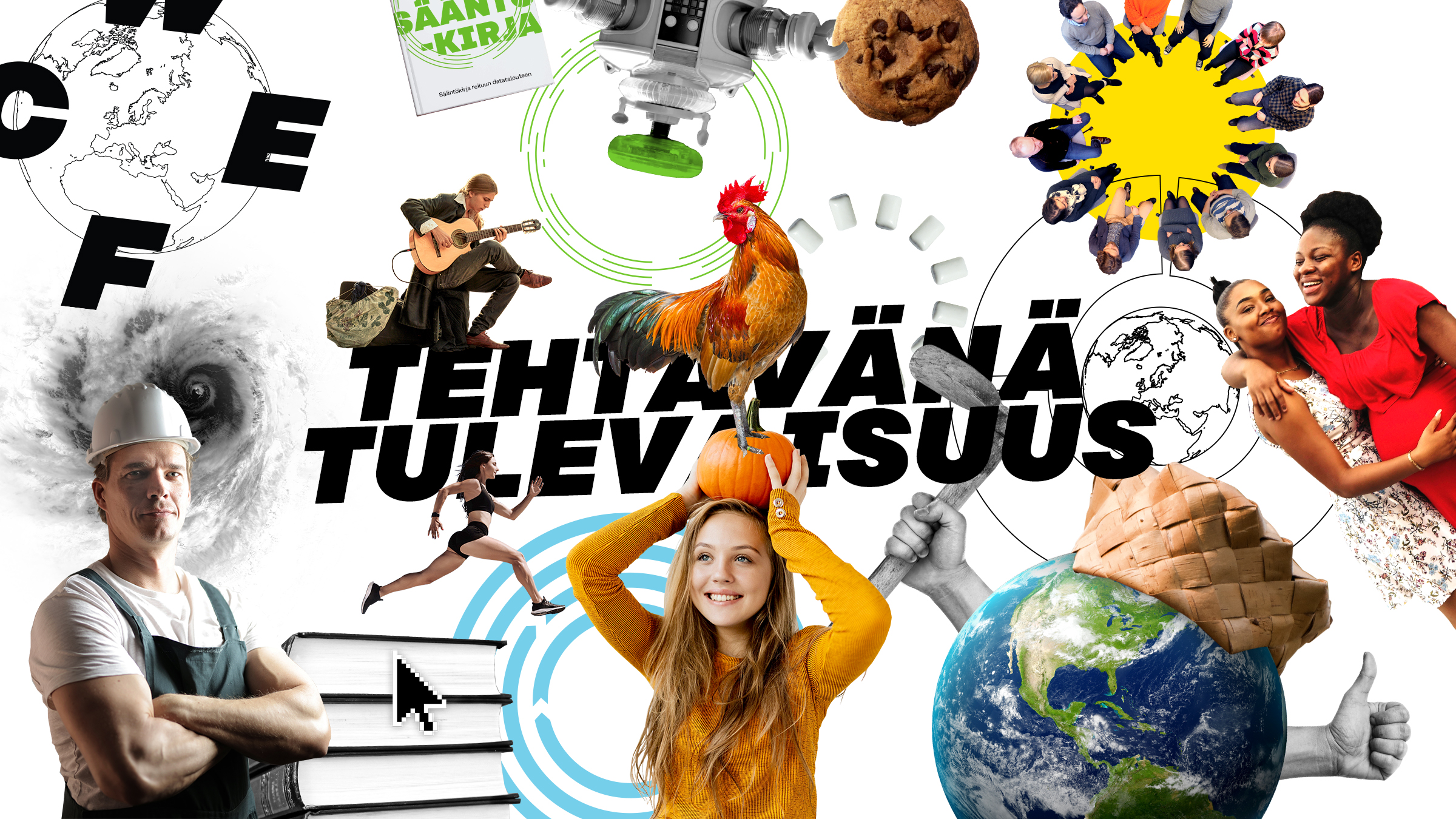
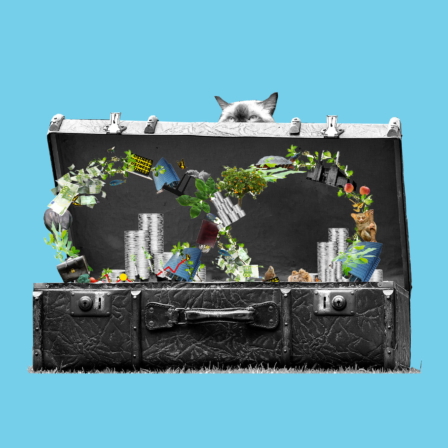
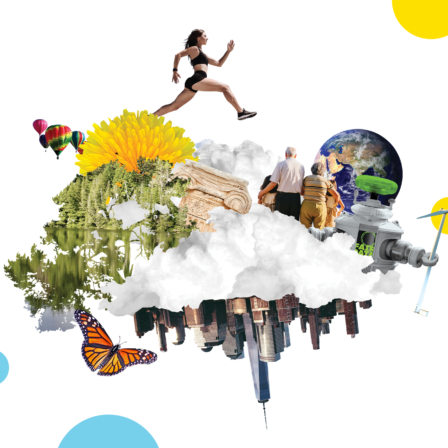
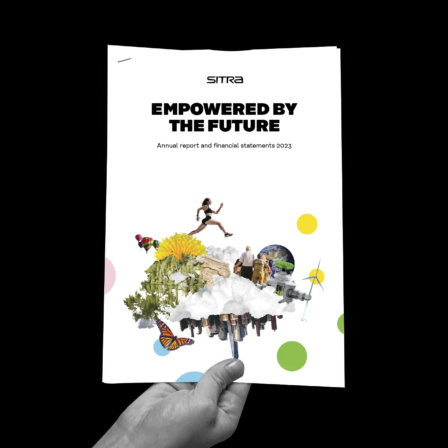
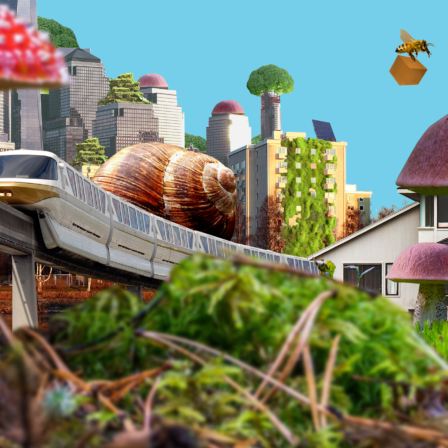








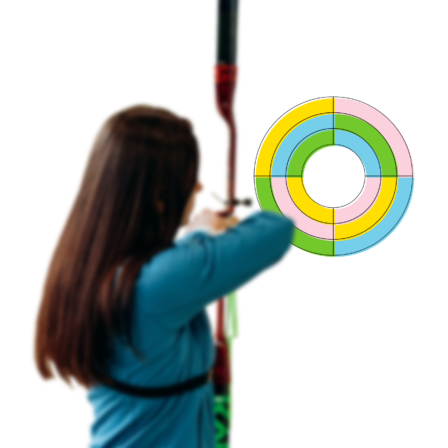



Recommended
Have some more.